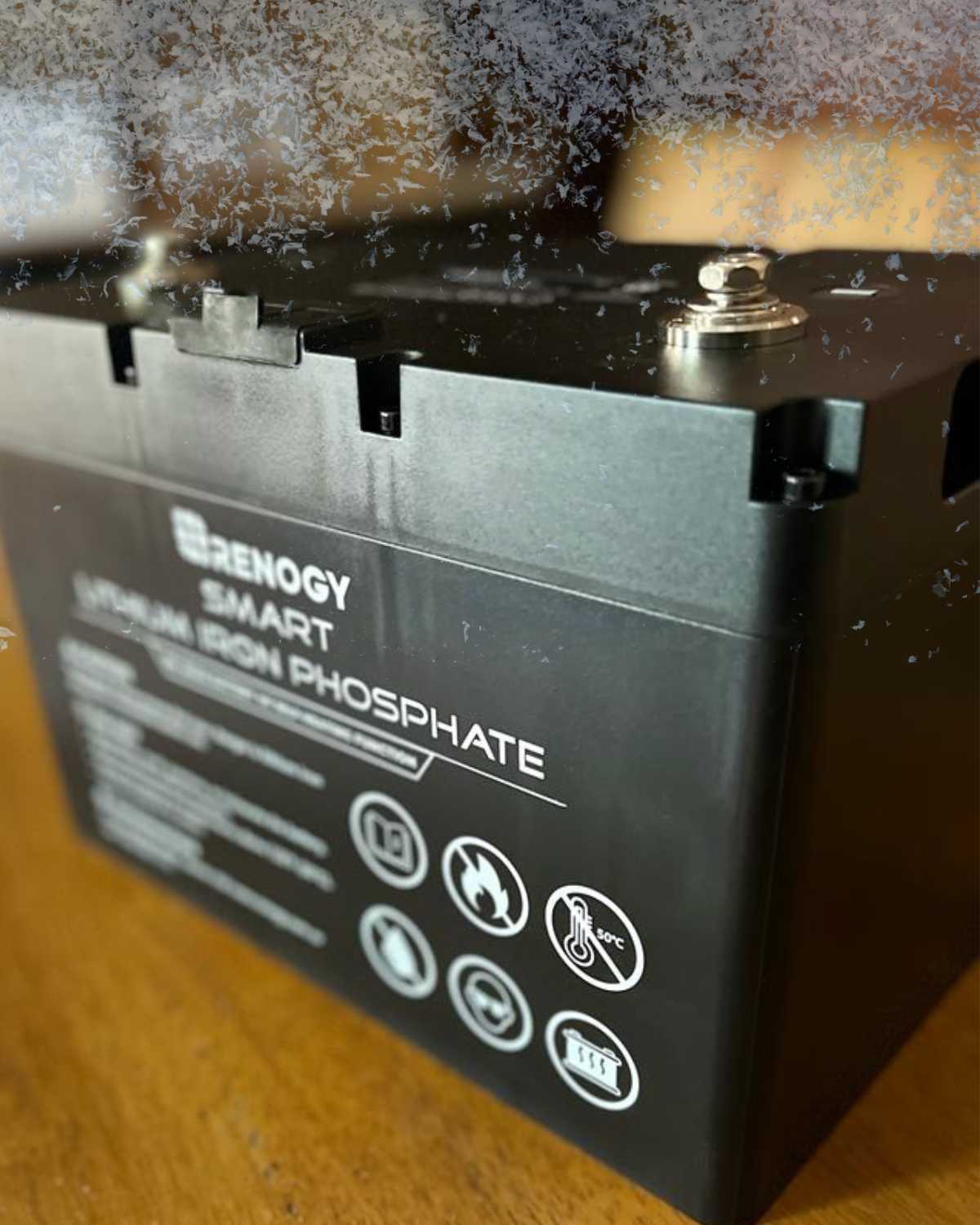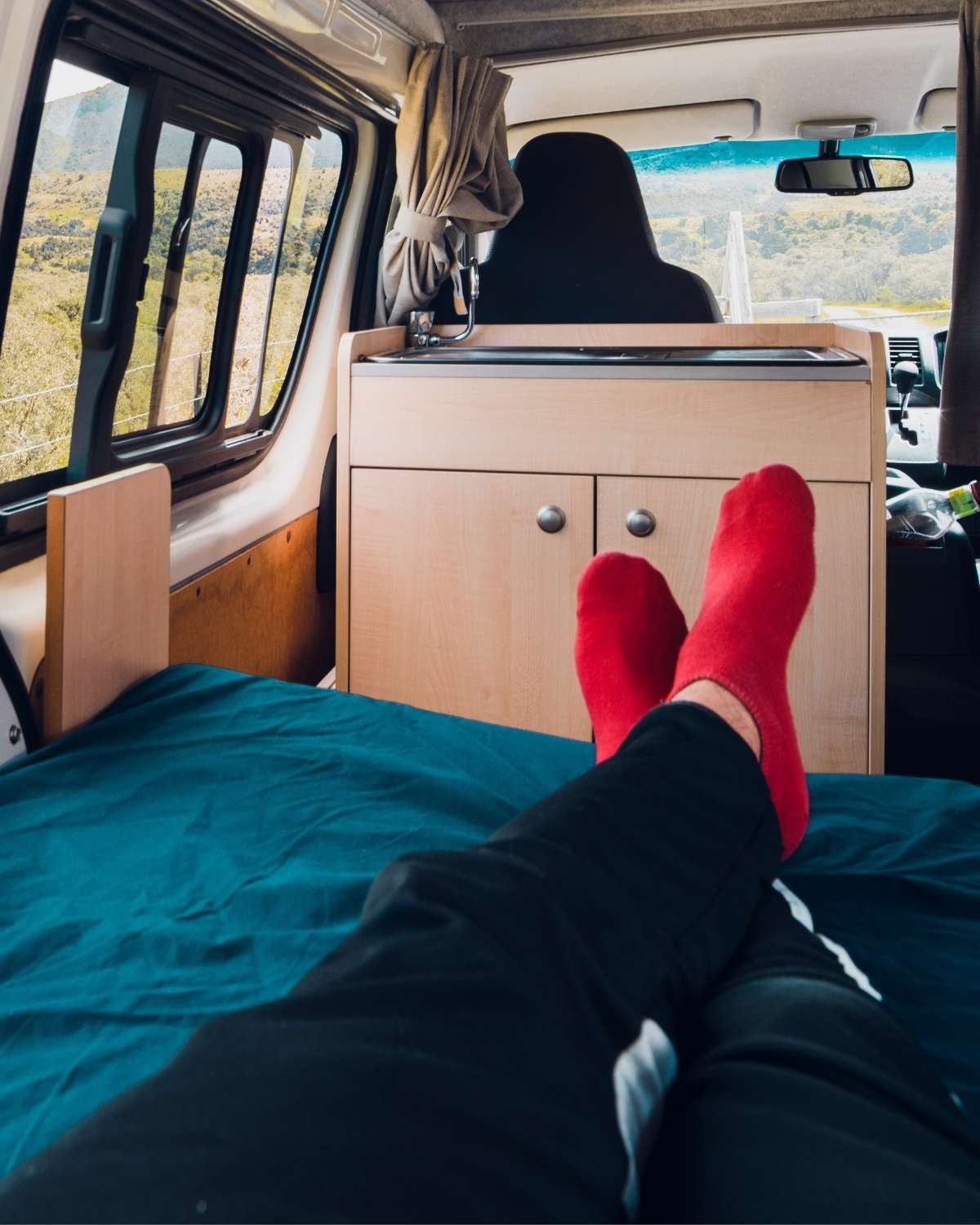Looking for the best diesel heater for van conversions, RVs, or campervans? We’ve got you covered! This guide will show you everything you need to know about diesel air heaters and help you choose the best one for your needs.
Living in a camper during the cold winter would be unbearable without a way to keep warm.
Sure there are ways to keep warm in a van without a heater. But if planning to spend any time winter camping, it’s best to consider other options.
Heating for campervans comes in a variety of fuel types.
Many consider 12v diesel heaters the best heating for RV living and van life. They’re energy efficient and can safely run all night in the worst of winters.
But there are a few available, from top-of-the-range brands like Webasto and Espar to cheaper and lesser known Russian and Chinese makes.
So what are the best diesel air heaters for campervans, RVs, and motorhomes? Read on!
When you click on links to various merchants on this site and make a purchase, this can result in this site earning a commission. As Amazon Associates, we earn from qualifying purchases. For more info, please check our disclosure page.
At A Glance | Best Diesel Heater For Van Conversions & RV Campers
 |
1. Webasto STC 2000
|
CHECK PRICE ► |
 |
2. Webasto Air Top Evo 40
|
CHECK PRICE ► |
 |
3. Espar Airtronic D2
|
CHECK PRICE ► |
 |
4. Espar Airtronic S2
|
CHECK PRICE ► |
 |
5. Unbranded Imports
|
CHECK PRICE ► |
How Does a Diesel Heater Work?
Diesel air heaters are basically air heaters.
A heat exchanger coil is heated inside a combustion chamber.
The heater draws in fresh cool air, passes it over the heated coil, and blows warmed air into your camper.
It’s that simple.
Why Choose a Diesel Heater?
Diesel heaters have a few advantages that make them the best options for heating a camper.
If your camper runs on diesel, you’ll never be short of fuel. Diesel air heaters can run directly off your main tank, so there’s no need for separate storage for different fuel types.
Diesel fuel is cheap and readily available, and because they’re so efficient, the running costs of a diesel air heater are insignificant.
Anything that helps keep van life costs down is a good thing.
The heat from a diesel heater is a slow and steady waft of warm, dry air, helping keep the van comfortable.
Because it has an external vent, it doesn’t add any moisture to the van and lowers the relative humidity.
These are the perfect conditions for helping to prevent condensation in a van.
The external vent also helps minimize any chance of carbon monoxide build-up. Still, we encourage you to install a carbon monoxide detector too.
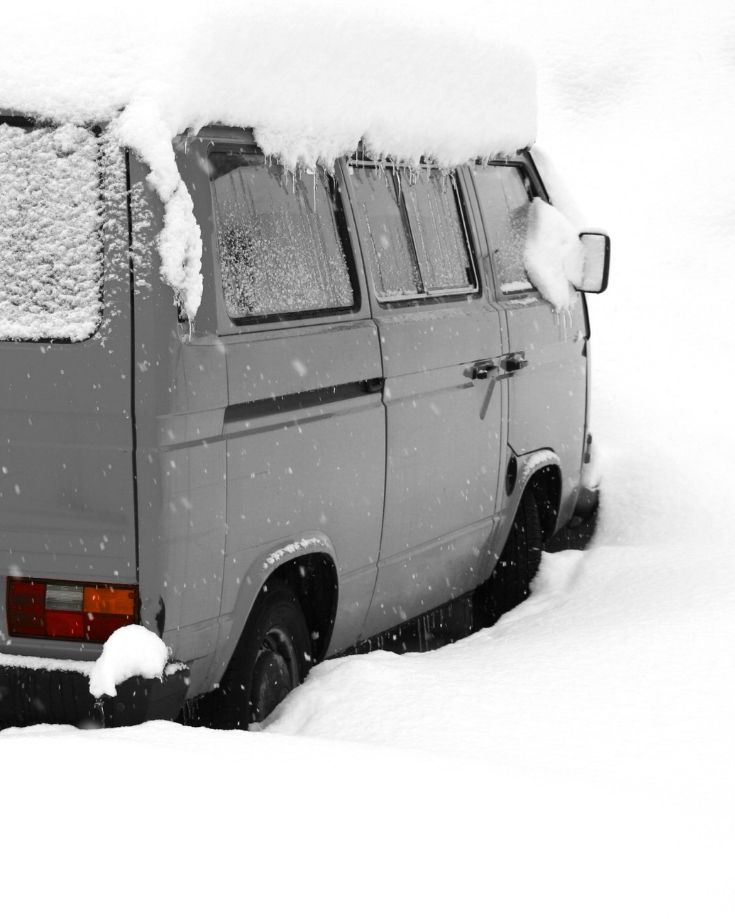
Things To Look For When Buying a Campervan Diesel Heater
Here are a few different features and specifications to look out for when comparing diesel heaters.
Heat Output
Buying the right sized diesel heater is critical so you don’t waste money on an over or undersized component.
Too small, and the diesel heater will not efficiently heat your space. Instead, it will use more electricity and fuel than necessary. At worst, it may not even keep you warm, even in the highest and noisiest setting.
Too big, you’ll spend a lot more money on the initial outlay.
It’ll rarely need to run on full blast, and more carbon will build up, so it will need more regular maintenance. Add to that, it’ll cycle more often.
Diesel air heaters are noisiest and use most electricity when switching on and off, so aim for a size that will keep the cycles down.
The right size depends on how much space needs to be heated.
Remember, overhead cabinets will reduce the space that needs heating. However, removing the bulkhead when converting the van, exposing the driver’s cab, increases the space you need to heat.
We suggest a 2KW heater power for medium-sized vans. For anything larger, look for 4-5KW.
Altitude Setting
Diesel heaters can be problematic at high altitudes – above 5-6000 feet above sea level.
The top-end models have features that change the mix of air & fuel, so they still operate at higher altitudes.
Even with the high altitude kit, our Webasto struggled at 15000 feet above sea level in Bolivia, but that was an extreme altitude.
If you expect to spend time at high altitudes, look for a model with a feature or optional extras to allow them to operate.
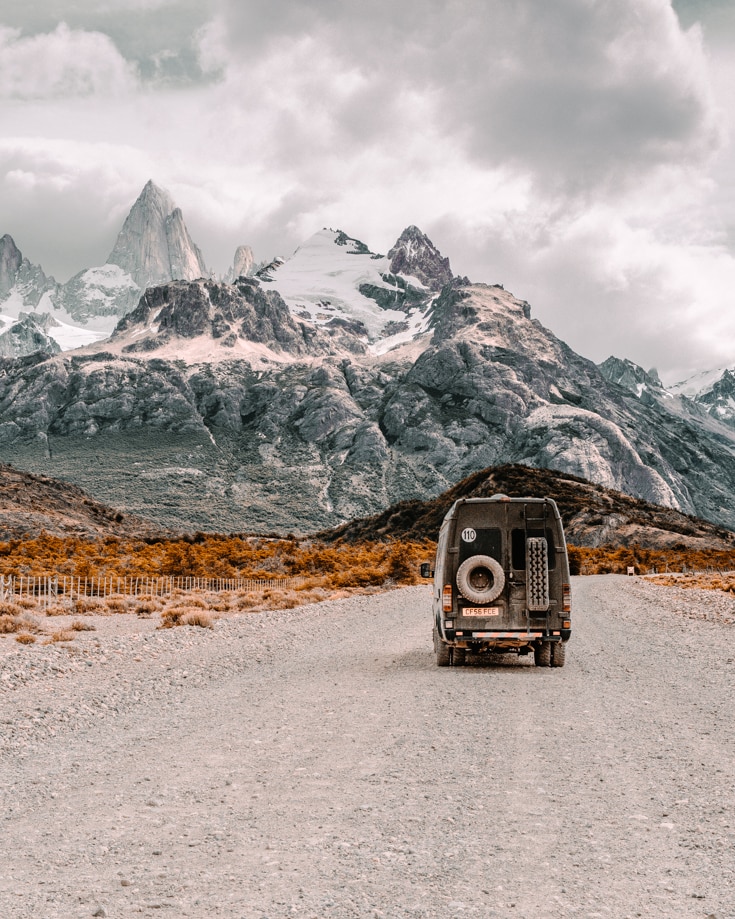
Noise
Diesel air heaters can be pretty noisy, especially if you’re trying to sleep.
They make the most noise on their highest settings, and during startup and shutdown cycles.
You can help reduce the startup by keeping the thermostat at a comfortable temperature and installing the right size heater for your van.
The top-end models have features to minimize the racket they make.
We have a Webasto in our Sprinter conversion and lived through a Patagonian winter. It never disturbed us, and we had it running round the clock.
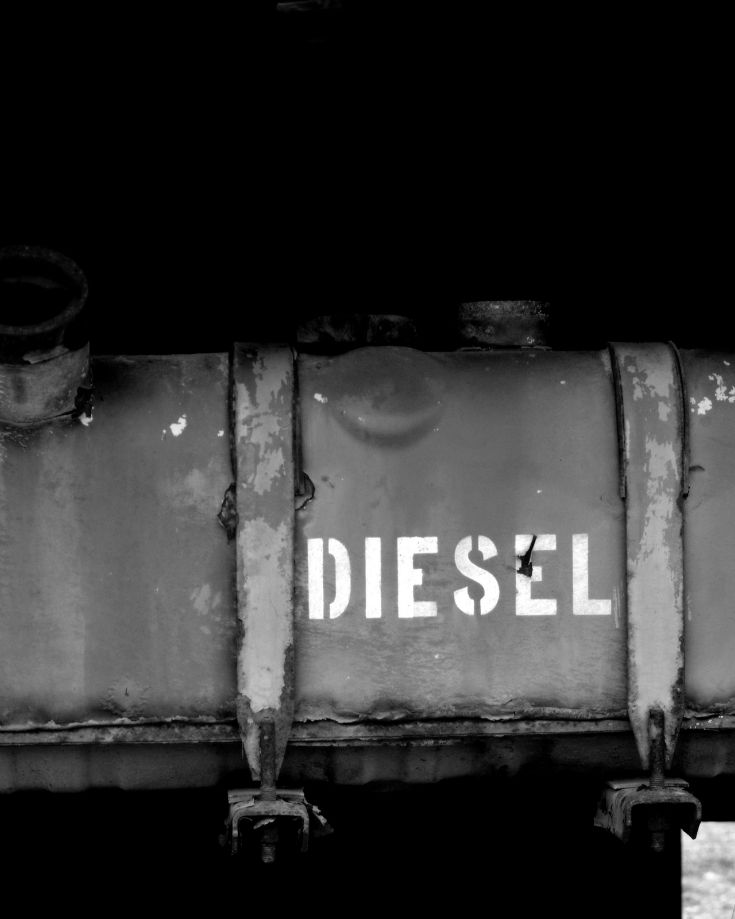
Electrical Demand
Diesel heaters need a 12v electrical supply to get going. As a result, they demand a surge of power on startup and shutdown and a trickle when in use.
While not a disadvantage, it’s worth bearing in mind that the initial startup takes a good surge of power. From cold, this can be as much as 15 amps.
The high draw only lasts a few seconds. After that, ours drops to 3 or 4 amps for another 5 minutes.
Once it’s warm, it runs at around 1 amp per hour.
Make sure you take this into consideration in your solar battery bank calculation.
Some diesel air heater brands have models for both 12v and 24v batteries. All the models in this article are the 12v versions.
Maintenance
Diesel fuel is quite a dirty fuel, so the heaters can suffer from carbon build-up over time. To prevent this, give the heater a run for an hour at full blast at least once a month.
Otherwise, follow the manufacturer’s maintenance and cleaning routines to help keep it in tip-top order.
Fuel Efficiency
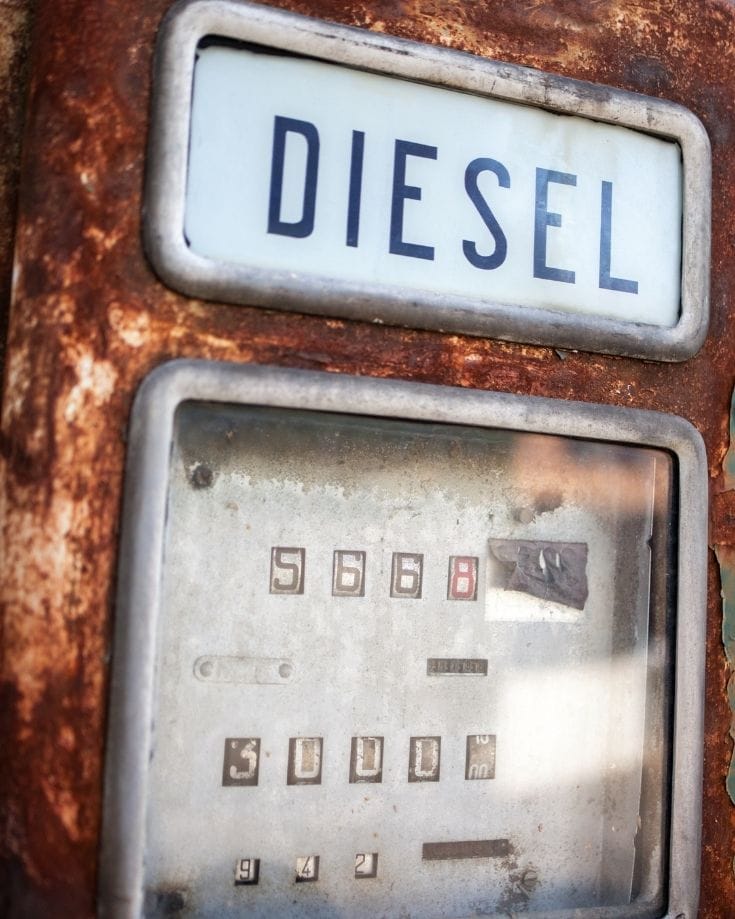
Diesel heaters use diesel, of course, though the top-end models now have petrol versions of their products.
The fuel efficiency is fantastic and incredibly low on all diesel heaters.
Some are slightly better than others and, depending on the settings, use around 0.1 and 0.5 litres per hour.
The cost of running a diesel heater in a camper is really low compared to other heating options.
Cost
The top-end models have a high cost, especially compared to a comparable Propex gas heater.
But if budget is critical at this stage of your DIY campervan conversion, the low-end Russian and Chinese diesel heaters are much, much cheaper.
The price difference is so big that if you upgrade later, you won’t feel the cheap version is a waste of money. But, of course, it’s easy to swap them out too.
Reliability & Servicing
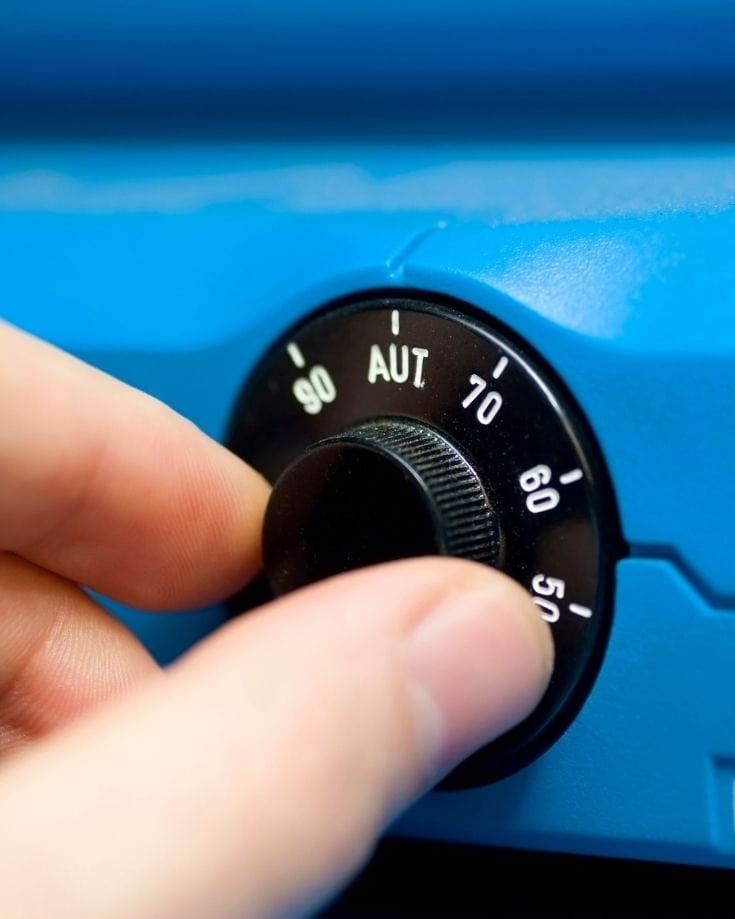
The top-end brands of Webasto and Espar have a proven track record regarding the quality of the build and reliability of the product.
You’d expect that, at the very least, at the prices they’re charging.
They both have pretty good coverage of service centers across Europe and North America. They’ll take care of you if you have warranty claims or service issues.
The budget models have no such track record or service centers. So you are pretty much on your own when finding advice or servicing.
However, because the budget models have become so popular, there’s a huge Facebook group with loads of advice and support for dealing with common problems.
So many people are using them issue-free now that we have no hesitation in considering one for future campervan conversions.
Comparison Chart Of The Best Diesel Heater for Van Conversions
 |
Webasto STC 2000
|
CHECK PRICE ► |
 |
Webasto Air Top Evo 40
|
CHECK PRICE ► |
 |
Espar Airtronic D2
|
CHECK PRICE ► |
 |
Espar Airtronic S2
|
CHECK PRICE ► |
 |
Unbranded Imports – 2kW**
|
CHECK PRICE ► |
 |
Unbranded Imports – 5kW**
|
CHECK PRICE ► |
* Optional extra available for altitude feature
** Technical specification is estimated
Webasto STC2000 & Air Top Evo 40

Along with Espar, Webasto is one of the 2 top-end diesel air heater brands for vans, campervans, RVs, and boats.
They produce high quality and reliable components and have a network of service centres and dealers, especially in Europe.
The most common heaters for campervans are the STC 2000 & Air Top Evo 40.
Heat Output
The STC 2000 is best suited for campers up to medium-sized, and the Air Top Evo 40 for larger RVs.
We have an STC 2000 installed in our long wheelbase Sprinter conversion.
Because we have no overhead cabinets, we have quite a lot of space to heat.
Though it served us well during a Patagonian winter, if we were to do the conversion over again, we’d opt for the Air Top Evo 40.
Altitude Setting
If you plan to spend time at high altitudes, anything over 2000 metres on both models might work well.
The Air Top Evo 40 has an in-built altitude sensor, and the spec states it’ll work up to 5500 metres.
The STC 2000 specification is a little more vague when committing to the altitude it works to. Ours has an altitude boost on the control panel.
But that only really worked well up to about 2500 metres.
After that, a manual, electrical adjustment is needed, which is really fiddly. It’s not ideal if your altitude changes frequently.
Electrical Demand
Both Webasto models run on a low amps, so you’ll barely notice any drain on your campervan batteries.
Remember, though, they need a bigger surge to start from cold.
If possible, keep the start cycles to a minimum by maintaining a comfortable temperature all the time.
Use our electrical calculators to help size your solar setup.
Fuel Consumption
As expected from a diesel heater, the fuel consumption is really low.
On the lowest setting, the STC 2000 will use less than 3 litres in 24 hours of constant running.
Cost
Webasto products, like Espar’s, carry a high price tag.
But as with most things in life, you get what you pay for.
With Webasto diesel heaters, the price tag buys a high quality, well-built product with an excellent track record and reputation.
You’ll find dealers in most of the northern hemisphere too.
Espar Airtronic D2 & M2

Along with Webasto, Espar is the other top-end diesel heater brand for campervans, RVs and boats.
They produce high quality and reliable components and have a network of service centres and dealers.
The most common Espar heater for campervans is the Airtronic D2. However, the M2 matches the Webasto Air Top Evo 40 for heat output.
Heat Output
The Espar Airtronic D2 is best suited for campers up to medium-sized, and the Airtronic D2 for larger RVs.
Consider how much space you have to heat. If you’ve removed the bulkhead or have no overhead lockers, you may need a larger heater, even in a medium-sized camper.
Both Espar models provide a greater heat output than their Webasto alternatives.
Altitude Setting
The Espar D2 is guaranteed to work up to 1500 metres above sea level.
For extended periods spent up to 3000 metres, a high altitude sensor or pump kit is needed.
The altitude sensor measures atmospheric pressure, automatically adjusting the frequency of the metering pump every 300m of altitude increase.
The high altitude pump kit is a cheaper option but more manual. You need to install a 2nd pump and manually set the pump to use.
You can switch between the 2 when you change altitude, but it’s not the most elegant solution.
Electrical Demand
Both Espar models run on low amps. At full power, they’re a little more thirsty than the Webasto, but they have a slight advantage on lower power.
As with all diesel heaters, they need a bigger surge to start from cold.
If possible, keep the start cycles to a minimum by maintaining a comfortable temperature all the time.
Use our solar battery bank calculator to help size your solar setup.
Fuel Consumption
Fuel consumption is really low on the Espar diesel heaters too.
On the lowest setting, the Airtronic D2 will use less than 2.5 litres in 24 hours of constant running. Plus, the S2 has a silent fuel pump for super quiet operation.
Cost
Espar’s products carry a high price tag, though they tend to be slightly lower cost than Webasto.
Even so, they don’t cut corners on quality and in terms of reliability, Espar’s are on a par with a Webasto.
You’ll find dealers in most of the northern hemisphere too. In North America service centres are more widely available than Webasto.
Chinese & Russian Imports

Now bear with us here and try not to be immediately put off by these Chinese or Russian imports.
We wouldn’t normally consider a low end product for our camper conversion but these have a growing fanbase.
There are many, many “brands” available.
Just search for 12v diesel air heater on Amazon. You’ll find brands like Planar, Snugger, Ambienceo, Happybuy and many more unbranded options.
For a component that if not installed correctly, could have catastrophic consequences, this sounds like a reason to steer well clear.
Except these components are less than 10% of the price of a Webasto or Espar. So over the years, converters have tried and tested them out so that today, there are thousands of campervans the world over with these things installed.
As you might expect from unbranded products, warranties don’t exist – or at least not ones worth the paper they’re written on.
Operating manuals and installation instructions can be absent or written in Chinese, and you won’t find a service centre on this planet.
But there’s a dedicated Facebook Group of like-minded customers, all of who have or are considering installing a low cost alternative to the Webasto and Espar models.
Some installation issues occur, but because so many people have now installed them, the most common issues are well understood.
If you experience an issue, 9 times out of 10, you’ll find someone in the group who has also experienced it and has a suggested solution.
So with specifications comparable to the Webasto and Espar diesel air heaters and coming in at a fraction of the cost, we think you should at least consider Chinese diesel heaters as a potentially viable alternative.
We can’t recommend a specific make or model but encourage you to join the Chinese Diesel Vehicle Air Heaters Facebook group.
Are Diesel Heaters Safe in Vans?
Diesel heaters are perfectly safe in vans as long as they are installed correctly. That means having proper ventilation to avoid any harmful fumes escaping into the living area.
A correctly fitted diesel air heater is safer than a correctly fitted propane heater. Diesel fuel isn’t flammable until it’s under intense pressure. Honestly! You can throw a lit match into a puddle of diesel, and it won’t ignite.
Compare that to the reaction of doing the same with propane! Don’t try that at home!
Anyone who has spent time if a camper in cold conditions knows the trouble condensation can cause. Again, compared to a propane heater, the dry heat produced by a diesel fuel heater helps to remove moisture from the air.
As with any combustion appliance, you should have a working carbon monoxide alarm.
Finally, follow the manufacturer’s instructions when installing and using your diesel heater.
Where Do You Fit a Diesel Heater in a Van?
There are four primary considerations when choosing the best place to fit a diesel heater in a campervan:
- The camper’s layout,
- Space underneath the van,
- Distance from the fuel tank,
- Position of air intake relative to the exhaust.
The camper’s layout
If you’re looking for maximum warmth, you’ll want to position the heater near the living area. This way, the hot air will flow toward you, keeping you cozy and comfortable.
You also must ensure that the hot air vent is clear of any obstructions. It’s all about finding a position where it’s out of sight but still within reach.
Space underneath the van
If you’re converting a van, you probably already know the space underneath the van is crucial. However, finding suitable positions for underslung water tanks, extra fuel tanks, and waste water outlets is challenging.
You need to be able to drill a hole in the floor, so the space must be clear of cross members, fuel lines, and underslung water tanks.
Positioning the diesel air heater is about finding a spot clear of obstructions so your heater can work efficiently and safely. Take your time and plan accordingly.
Distance from the fuel tank
One thing you need to consider when positioning your diesel heater is the distance from the fuel tank. The fuel pump needs to be powerful enough to pump fuel to the heater, so if the tank is too far away, you might not have enough pressure.
Most diesel air heaters come with a fuel line, usually about 1 meter/3 feet. Using that line and not extending it is a safe bet. That way, you’ll know that the pump can handle the distance and effectively provide fuel to the heater.
Position of air intake relative to the exhaust
With a diesel heater, you also need to find a position to run the exhaust and the air intake.
The heater must draw clean, fresh air from outside the van for the combustion process to work. If the air intake is too close to the heater’s exhaust, you may draw in lethal carbon monoxide fumes. Not a great idea!
You can use the long exhaust pipe to ensure the fumes are expelled far enough away from the air intake.
The air intake and exhaust pipes need to be secured to the van’s underside. Consider where you can screw in your p-clips, avoiding water and fuel lines.
Do Diesel Heaters Need to be Vented?
The short answer is yes, they do. Burning diesel fuel creates carbon monoxide, and that can kill. The only way to avoid the toxic fumes leaking into your camper is to vent it outside.
Always follow the manufacturer’s instructions when fitting your heater to ensure it is safely and correctly vented. You should also perform routine checks to ensure the vent seals remain intact.
A carbon monoxide alarm will help with the early detection of issues.
Can You Run A Diesel Heater All Night?
You can run a diesel air heater all night, and its gentle hum won’t disturb your slumber. That makes them perfect for those who like to sleep soundly through the night.
A diesel heater emits no fumes inside the van if fitted correctly. So they are safe to run all night without the risk of carbon monoxide leaks.
Plus, they’re thermostatically controlled. Once the ambient temperature reaches the level you’ve set, the heater automatically switches off without you having to leave your bed to turn it off.
And of course, diesel heaters are very fuel efficient, so you won’t empty your tanks overnight.
Can I Use My Diesel Heater While Driving?
The answer is a resounding yes! Not only is it safe to use, but it will also mean your camper will be toasty warm when you arrive at your destination.
Just be sure to turn it off at fuel stations.
Conclusion
It’s hard to find an outright winner for the best diesel heater for van conversions and campervans.
As with so many parts of campervan conversion and van life, it really depends on your intended use and budget.
- If you want something cheap, choose a budget Chinese or Russian model
- For travelling in your camper at altitudes above 3000 metres, choose a Webasto Air Top Evo 40
- The best value, high-end diesel air heater in the Espar Airtronic D2
Regardless of which diesel heater you choose for your van, their fuel efficiency is so high, you can be confident you’re choosing the most economical RV heating option available.
Angela Devaney

Angela Devaney, a former IT project management professional, embarked on an adventurous journey of full-time travel, which included touring West Africa in a converted overland truck and converting an ex-military 4×4 Sprinter van into a camper for a five-year South American expedition. She now utilizes her hands-on experience to create practical RV living and van life advice as a full-time digital media producer, reaching over a million users annually through her YouTube channel, blog, and newsletter. Angela also lends her expertise as the editor-in-chief of the Campervan Electrics Handbook.

